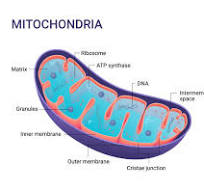“Mitochondria: The Powerhouses of Your Cells and How to Boost Their Energy Production”
Discover the incredible role of mitochondria, the powerhouses of our cells, in maintaining our health and vitality. Learn how these tiny organelles produce ATP, the energy currency of our cells, and explore practical tips on how diet and lifestyle choices can enhance mitochondrial function. From the benefits of healthy fats and fermented foods to the importance of exercise and stress management, this blog post offers valuable insights for boosting your energy and overall wellness. Perfect for anyone looking to understand the essential role of mitochondria in our health.
REGENERATIVE HEALTH
Debbie
7/1/20242 min read


The Mighty Mitochondria: The Powerhouses of Our Cells
Mitochondria, often referred to as the powerhouses of our cells, play a pivotal role in maintaining our health and vitality. These tiny organelles are responsible for producing adenosine triphosphate (ATP), the energy currency of the cell. Without ATP, our cells—and ultimately our bodies—would be unable to perform the myriad functions necessary for life.
The Role of Mitochondria in ATP Production
Mitochondria generate ATP through a process called oxidative phosphorylation, which takes place within the inner membrane of the mitochondrion. This process involves several key steps:
1. Glycolysis: This is the initial stage of glucose metabolism and occurs in the cytoplasm of the cell. Here, glucose is broken down into pyruvate, producing a small amount of ATP and NADH (another energy-carrying molecule).
2. Citric Acid Cycle (Krebs Cycle): The pyruvate produced in glycolysis is transported into the mitochondria, where it is further broken down in the citric acid cycle. This cycle produces additional ATP, NADH, and FADH2 (yet another energy carrier).
3. Electron Transport Chain (ETC): The NADH and FADH2 generated in the citric acid cycle donate electrons to the electron transport chain, a series of protein complexes located in the inner mitochondrial membrane. As electrons move through the ETC, they create a proton gradient that drives the production of ATP through a process known as chemiosmosis.
Boosting Mitochondrial Function Through Diet and Lifestyle
Optimal mitochondrial function is essential for overall health and energy levels. Here are some foods and activities that support mitochondrial health and enhance ATP production:
Foods that Support Mitochondrial Health
1. Healthy Fats: Avocados, nuts, seeds, and fatty fish are excellent sources of healthy fats, particularly omega-3 fatty acids, which are crucial for maintaining mitochondrial membranes and facilitating efficient ATP production.
2. Fermented Foods: Foods like yogurt, kefir, sauerkraut, and kimchi are rich in probiotics, which support gut health. A healthy gut microbiome can improve nutrient absorption, providing the mitochondria with essential vitamins and minerals required for ATP production.
3. Leafy Greens and Colorful Vegetables: Spinach, kale, and other leafy greens are packed with antioxidants and phytonutrients that protect mitochondria from oxidative stress. Vegetables like bell peppers and carrots provide vitamins and minerals that are essential co-factors in mitochondrial energy production.
4. Berries: Blueberries, strawberries, and other berries are high in antioxidants, particularly flavonoids, which help to protect mitochondria from damage and support their function.
Activities that Enhance Mitochondrial Function
1. Exercise: Regular physical activity, especially aerobic exercise like running, cycling, or swimming, increases the number and efficiency of mitochondria in muscle cells. Exercise-induced mitochondrial biogenesis (the formation of new mitochondria) enhances the capacity of cells to produce ATP.
2. Intermittent Fasting: Fasting periods can stimulate mitochondrial biogenesis and improve mitochondrial function. This process helps the body to become more efficient at producing ATP, even with fewer calories.
3. Adequate Sleep: Quality sleep is essential for mitochondrial health. During sleep, the body repairs and regenerates cells, including mitochondria. Poor sleep can lead to mitochondrial dysfunction, reducing ATP production and overall energy levels.
4. Stress Management: Chronic stress can impair mitochondrial function. Incorporating stress-reducing practices like yoga, meditation, and deep breathing can support mitochondrial health and improve ATP production.
Conclusion
Mitochondria are fundamental to our health, driving the energy production that powers every cell in our body. By focusing on a diet rich in healthy fats, fermented foods, leafy greens, and berries, alongside engaging in regular exercise, practicing intermittent fasting, ensuring adequate sleep, and managing stress, we can support our mitochondria and boost ATP production. This holistic approach not only enhances our energy levels but also contributes to overall wellness and longevity.
